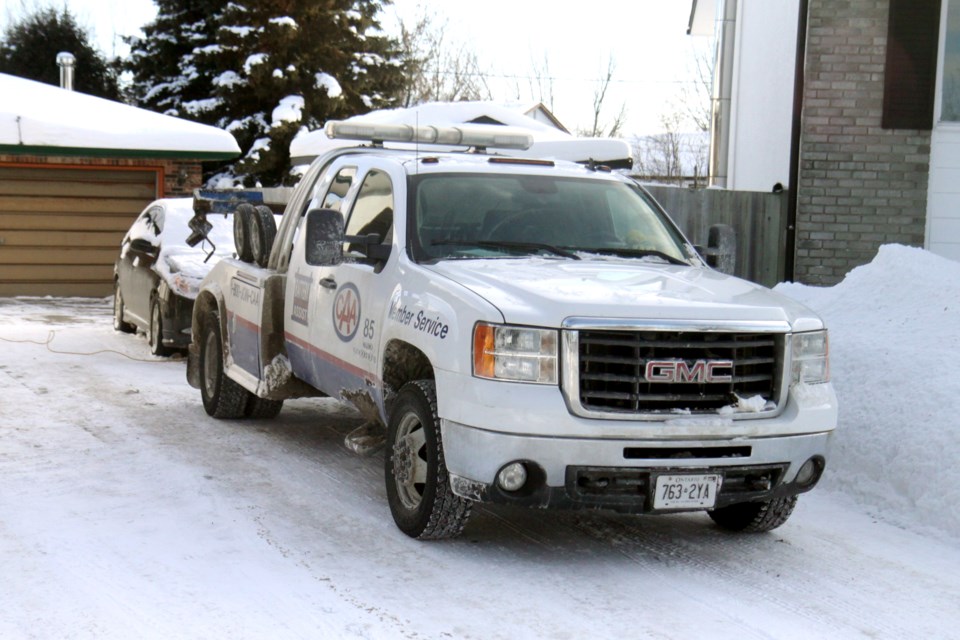THUNDER BAY – It might be too cold for school buses to run, but commuters across Thunder Bay were crossing their fingers on Monday morning, hoping their vehicles would start.
If they don’t be prepared to wait.
The city is caught up in an extreme cold warning, with temperatures plummeting below -35 C over night. Though most drivers in the city have block heaters installed on their vehicles, the city’s tow-truck operators have been booked solid in recent days, stubborn batteries refusing repeated requests to turn frozen engines over.
Wayne Salatino, northern fields co-ordinator at the Canadian Automobile Association, said it’s been absolutely crazy.
“We’ve been handling probably in the vicinity of 100 to 150 calls a day. Probably today we’re going to hit closer to 175 to 200 calls,” Salatino said, reached by phone by CKPR Radio.
Customers are mostly looking for boosts.
According to holtsauto.com, when cold temperatures hit, batteries produce less electrical current, because the chemical reaction inside slows down. Add in the fact that oil doesn’t flow through the engines as easily, and there’s more strain on the battery.
The cold weather also delays the time it takes for an engine to reach its optimum operating temperature, which affects the alternator’s efficiency to keep the battery charged. This also leads to a decrease in fuel efficiency.
Salatino urged customers to be patient should they need servicing.
They’re working as fast as they can, but sheer volume has led to back-ups.
“Right now the time for people at home is in around five hours,” he said. “Although depending on where the truck is located, they might be getting to them a lot quicker. People on the side of the road, we’re still giving them a 45-minute ETA. People who are in safe spots, we’re roughly about three hours.”
Living through a Northern Ontario winter, it’s a good idea to have an emergency kit in one’s vehicle, just in case.
A blanket, extra clothing and shoes or boots, a small shovel, a candle in a deep can and matches, a whistle, food that won’t spoil and water are great starting points. Jumper cables, a tow rope and extra windshield wipers and antifreeze are other things to consider.
Salatino said CAA members have the option, should another tow truck show up, is to take the tow, pay the bill and submit for reimbursement.
“That way you’re out of the danger area right away. If not, just be patient with us and we will get to you,” he said.
With files from CKPR Radio
